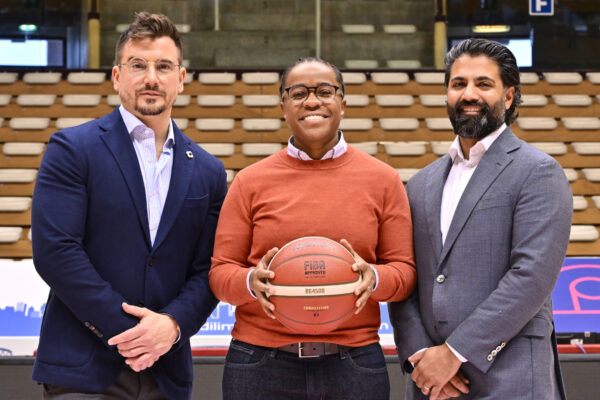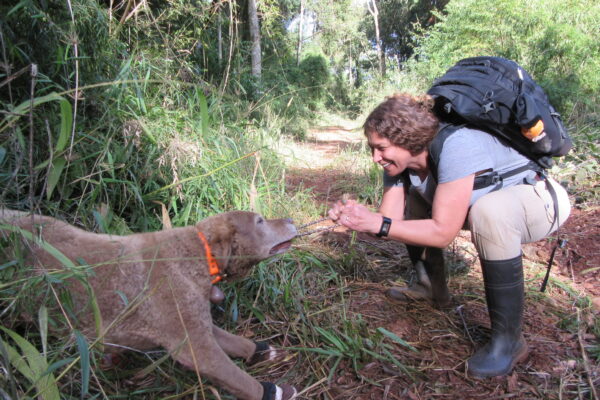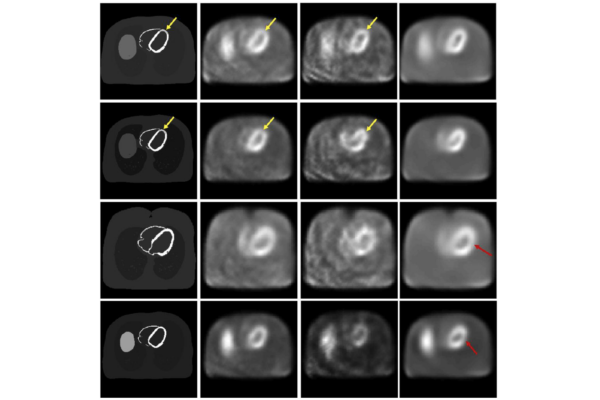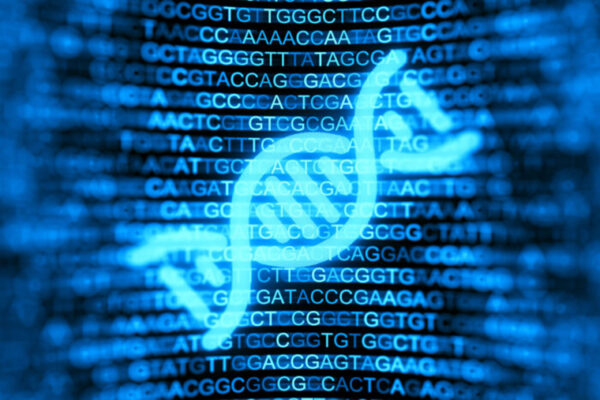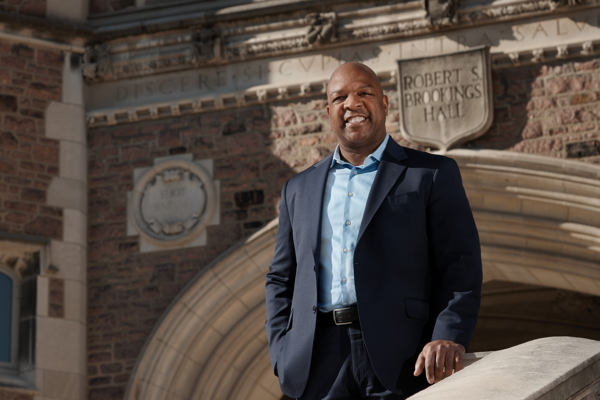The owner’s box
For lawyer, investment group co-founder and sports fan Fitzann Reid, JD ’12, owning an Italian basketball team is the first step to writing her own rules as an international sports executive.
Empowering teachers
WashU’s Institute for School Partnership is working with two underperforming elementary schools in St. Louis to develop creative teacher-leaders, and the results show marked improvement in student performance.
Wonder, enchantment and the epic of evolution
As a biology faculty member, Professor Emerita Ursula Goodenough invited non-science majors to understand and reflect on the history of life on Earth. The second edition of her book, The Sacred Depths of Nature: How Life Has Emerged and Evolved, brings the wondrous saga to a new audience.
A dog’s work: Rescue animal goes all in for wildlife conservation
The legacy of Train, a retriever who assisted in conservation research, continues with a new study and a statue in Argentina.
Clinical utility, not ‘prettiness’
In a study published in Medical Physics, researchers in the lab of Abhinav Jha at the McKelvey School of Engineering evaluated artificial intelligence techniques for cleaning up medical images based on performance in clinical tasks.
Cooper to study spine development
John A. Cooper, MD, PhD, a professor in biochemistry and molecular biophysics at the School of Medicine, received a one-year $613,251 grant from National Institute of Mental Health, part of the National Institutes of Health (NIH).
Glitches in the matrix
As reported in a paper in Nature Communications, physicist Chong Zu in Arts & Sciences and his team are finding new ways to harness the quantum power of defects in otherwise flawless crystals.
Diagnosis of rare, genetic muscle disease improved by new approach
Researchers at the School of Medicine have developed an approach that could help doctors distinguish between the many subtypes of limb girdle muscular dystrophy, a rare, genetic muscle disease. With new therapies poised to enter the clinic, identifying the precise subtype is necessary to ensure access to the most appropriate treatment.
WashU launches School of Continuing & Professional Studies
University College is now the School of Continuing & Professional Studies (CAPS). The new name reflects the university’s commitment to serve the needs of St. Louis’ adult learners of all ages and backgrounds.
Dybvig presents at international conference
Philip H. Dybvig, a banking and finance expert at Olin Business School, was a key speaker at the 2023 Asian Leadership Conference, Korea’s premier international conference, in May.
View More Stories
